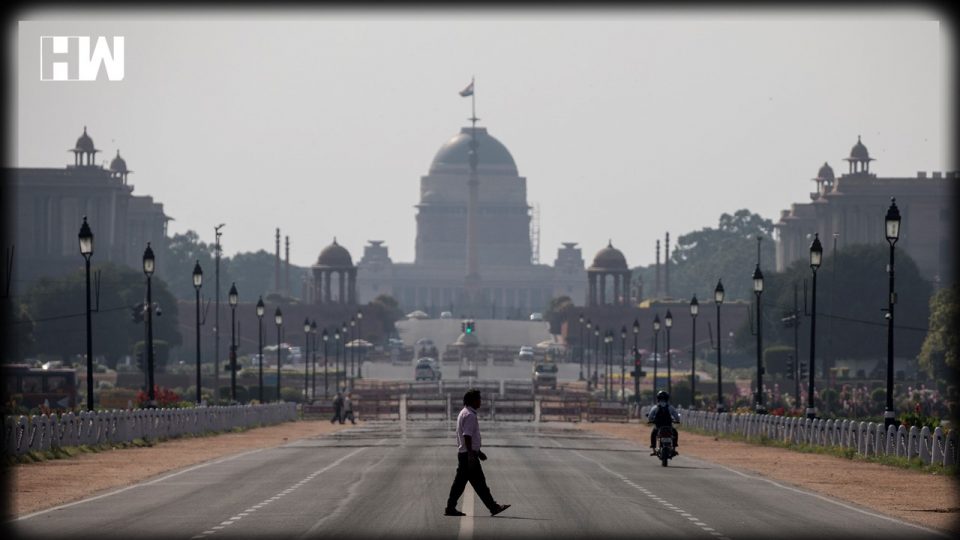Ministry of Home Affairs came out with a comprehensive list of essential services that will remain operational during the nationwide lockdown.
New Delhi| Amidst the cases of deadly coronavirus spiking in the country, the government has decided to impose a complete lockdown in an attempt to contain the spread of the virus.
After the lockdown was imposed, there has been a sense of panic, as well as confusion emerged among the people about what preciously lockdown means and how is it going to affect their day to day life.
Prime Minister Narendra Modi taking the onus to contain the spread of the deadly virus, has last week announced a one-day unofficial lockdown on Sunday naming it as ‘Janata Curfew’. Things went smooth as the day was Sunday – already a public holiday and people were enthusiastic towards the first time lockdown of the 21st century in India.
But the things were not the same as now it was not a one-day event but a week-long lockdown in the almost entire nation.
People came out of their homes and some tried to go to work and others did some unnecessary activities.
Hence to ensure strict lockdown, yesterday, PM announced a complete shut down in the entire nation.
Also Read: Doctors threaten indefinite strike against National Medical Commission Bill
But citizens need not panic. Here is the list of services that you can avail and things that you cannot do.
Will any kind of public transport ply?
No public transport, including operation of private buses, taxis, auto-rickshaws, and e-rickshaws, among others will be permitted. Only DTC buses will operate at not more than 25% capacity to cater to personnel engaged in essential services. Movement of inter-state buses/trains/metro (DMRC) will be suspended.
Can I book Ola/Uber?
No, most states have a ban on public transport, including taxis. Some states allow taxis to allow to go to hospitals and airports.
Will private cars and two-wheelers be allowed?
Yes, but only for those travelling for essential purposes. You may be stopped at airports and questioned.
What if there is a funeral?
Congregations of not more than 20 people will be permitted.
What if I am currently staying in a hotel?
Hotels, homestays, lodges and motels, which are accommodating tourists and persons stranded due to the lockdown, medical and emergency staff, air and sea crew will continue to run as-is.
Will local stores operate?
All shops, commercial establishments, factories, workshops, offices, godowns, weekly bazaars, etc, will close their operations.
Will my maid or driver be able to come?
Yes, but it is advisable to stick to essential services. They may be questioned at check.
Will I be able to buy petrol?
Yes, petrol pumps, LPG/oil agencies will continue to operate.
What if I have flight tickets?
All domestic and international flights during this period shall be suspended.
What about places of worship?
All religious places of any denomination will be closed.
Can I go to a hospital?
Yes, hospitals and medical stores will remain open.
What if I need medicines?
Chemist shops and pharmacies will be open.
Can I order items for delivery?
Yes, e-commerce of all essential goods including food, pharmaceuticals and medical equipment, food items, groceries, milk plants, general provision stores, take away/home delivery in restaurants will be open.
Can journalists go out to report?
Yes, print and electronic media journalists can.
Also Read: State education minister’s appeal to junior doctors to withdraw strike
Will I able to withdraw money?
Yes, cashier/teller operations of banks (including ATMs) will be open. However, individuals need a self-declaration to venture out.
Will the internet and couriers be suspended?
No, telecom, internet and postal services will continue to operate.
Can I go out in a group?
No. Any congregation of more than five people is strictly prohibited and punishable by law.
What are the services and establishments excluded from this order?
Offices charged with law and order and magisterial duties, police, health, fire, prisons, fair price shops, electricity, water, municipal services, activities related to the functioning of the legislative assembly, pay and accounts office.
What happens if I have animals?
Animal fodder, manufacturing, processing, transportation, distribution, storage, trade/commerce and logistics, related to all the above services/establishments and commodities required for delivery of these above services will continue.
Apart from all of the above, the following are the key points:
All educational, training, research. coaching institutions etc. shall remain closed.
All places of worship shall be closed for public. No religious congregations will be permitted, without any exception.
All social, political, sports, entertainment, academic, cultural, religious functions/ gatherings shall be barred.
In the case of funerals, a congregation of not more than twenty persons will be permitted.
As an independent media platform, we do not take advertisements from governments and corporate houses. It is you, our readers, who have supported us on our journey to do honest and unbiased journalism. Please contribute, so that we can continue to do the same in future.

